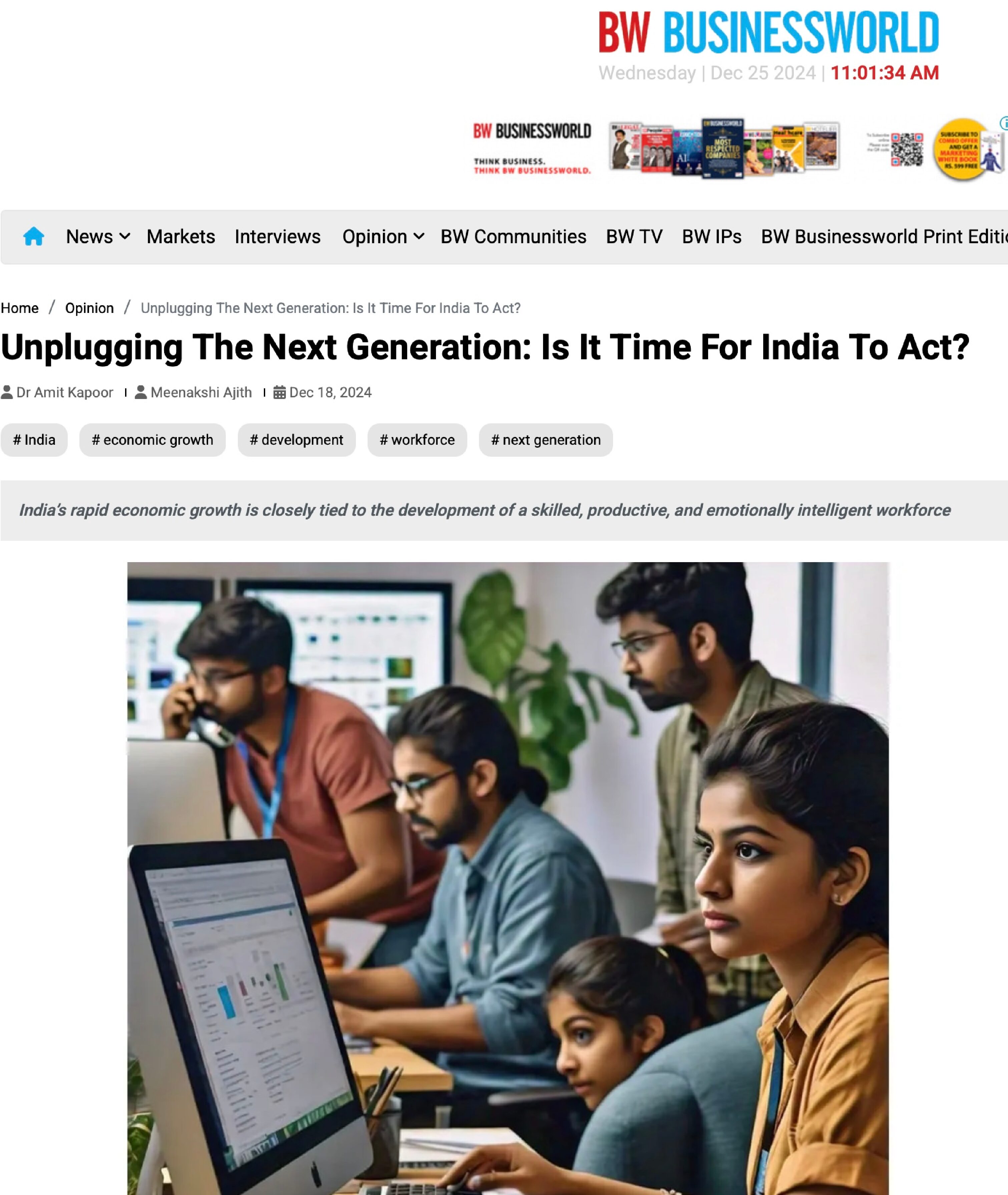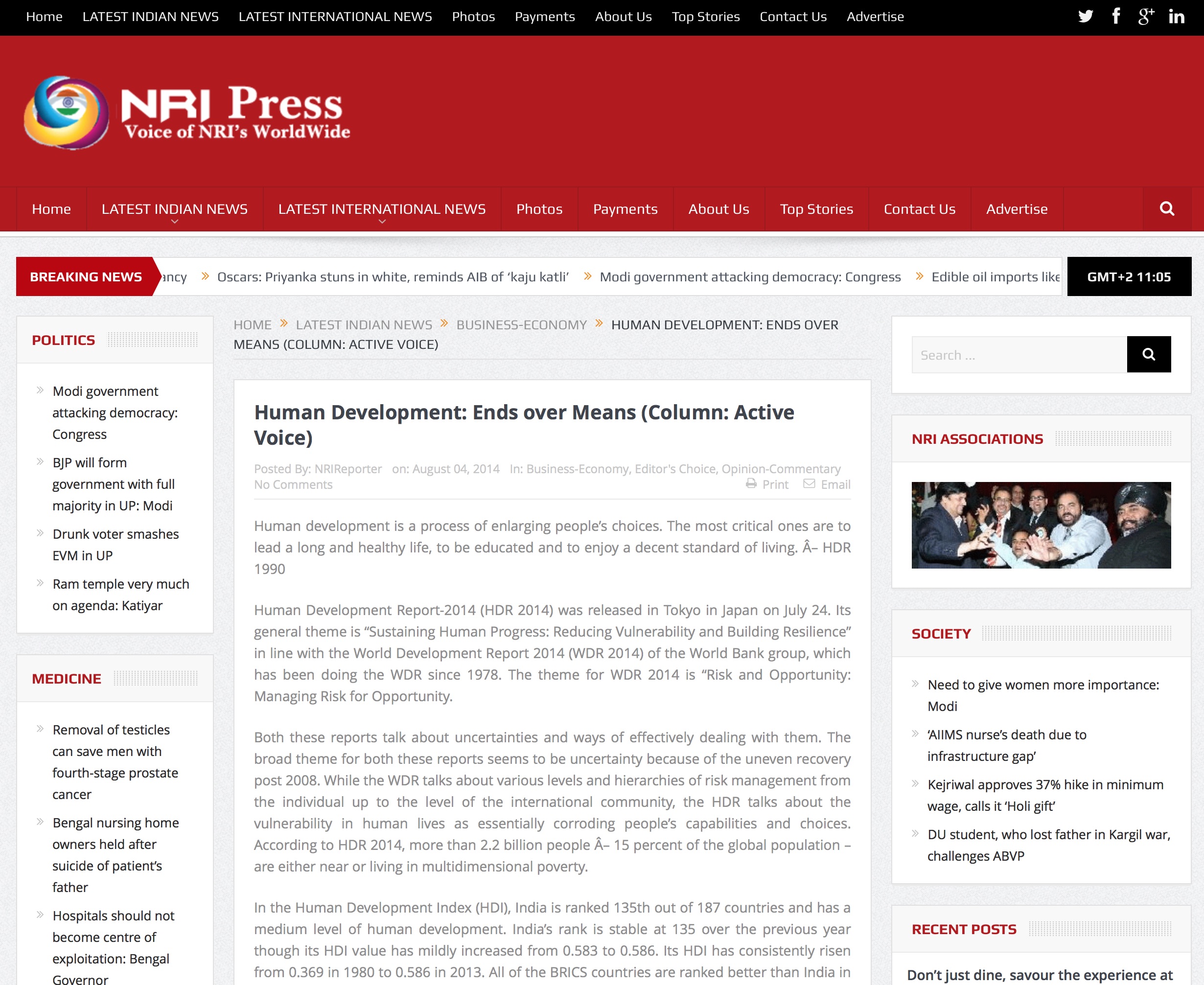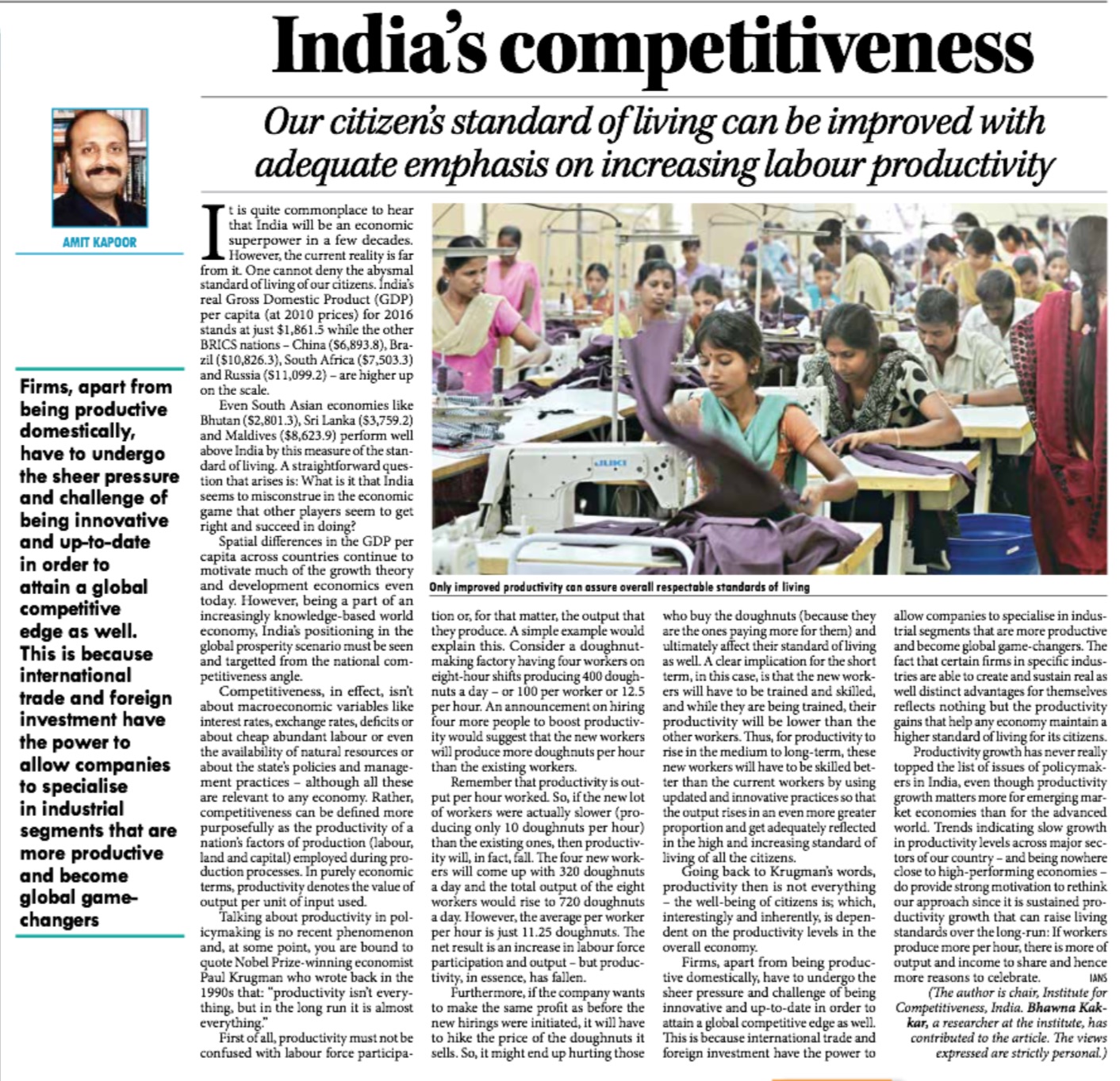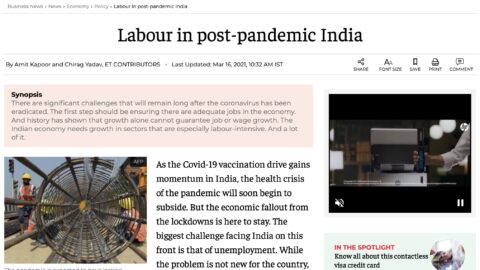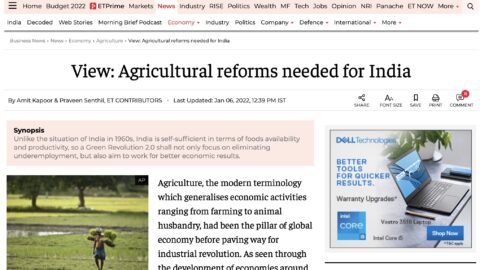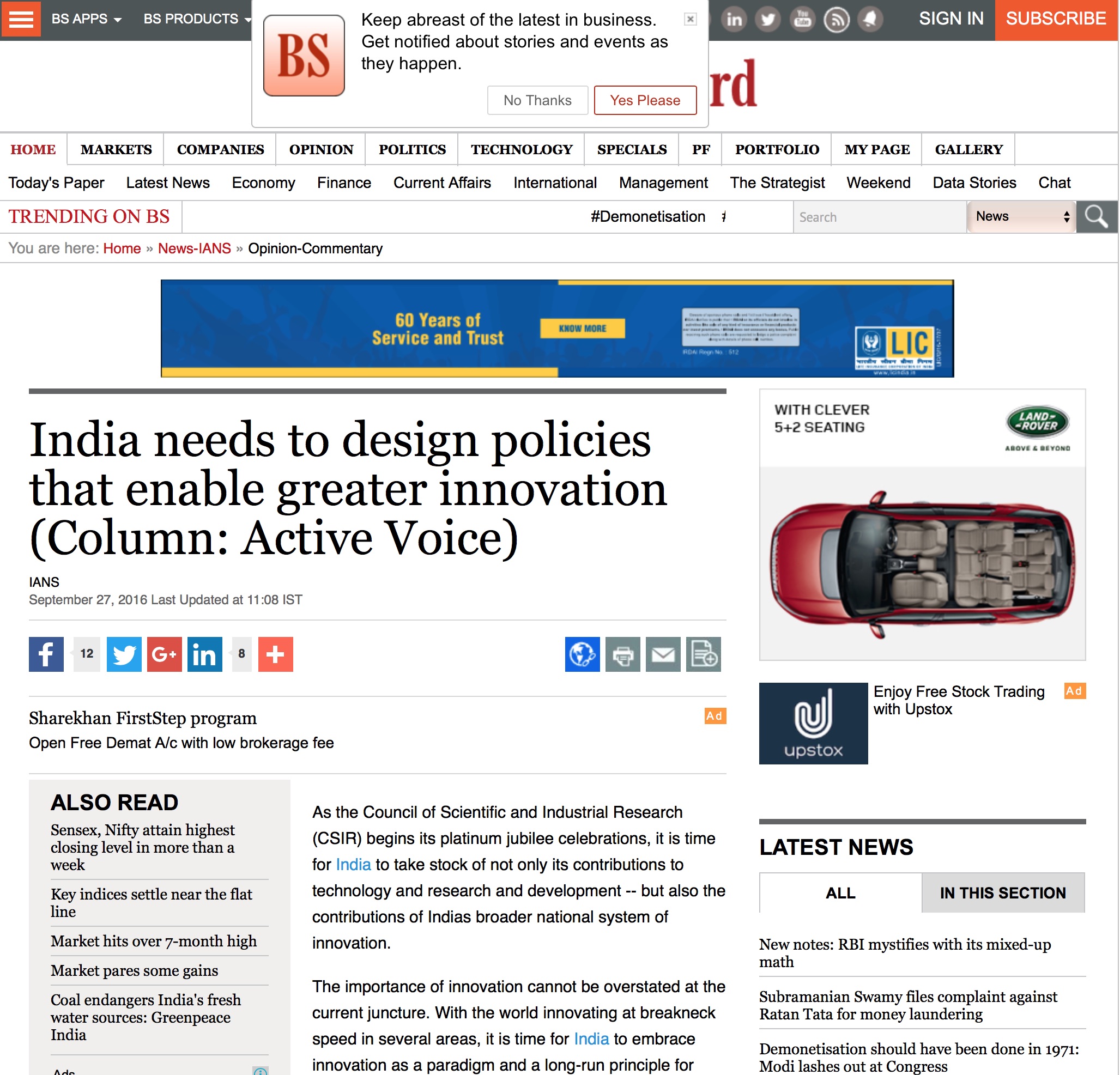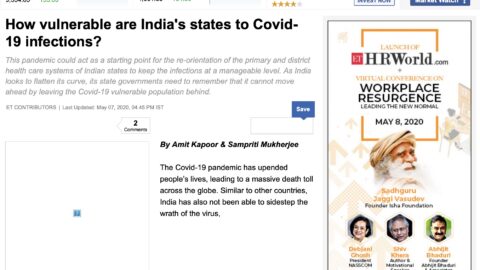By Amit Kapoor and Meenakshi Ajith
As we are living in times when toddlers are Instagram stars, it is indeed difficult to imagine a world where your kids’ first social media post is a proud announcement of their 16th birthday. While Australia’s new law may soon make that a reality down under, we are compelled to think: should India follow suit, locking kids out of Facebook, Instagram, and the likes until they are 16? Sure, good parenting is all about protecting our children from the pitfalls of the digital age, but it’s also about cultivating a more mindful and intelligent generation. Intelligence here isn’t just about a child effortlessly navigating an iPad or boasting a tech-savvy persona. It’s about fostering curiosity, encouraging critical engagement with the world beyond the screen, and strengthening bonds with their communities—skills that will matter far more in the long run than just mastering the latest digital gadget. Human evolution may have has taken us from the Stone Age to the Space Age, making us smarter with every leap. But if we’re not careful, social media might just take us back a few steps; stunting our growth and dulling the minds of our children.
India’s rapid economic growth is closely tied to the development of a skilled, productive, and emotionally intelligent workforce. However, the widespread use of social media among children and adolescents will inevitably undermine these goals. Recent research from the Norwegian Media Authority highlighted a troubling trend: 58% of 10-year-olds and 72% of 11-year-olds were already active on social media, despite the current legal age limit of 13 in Norway. The impact on their emotional and cognitive development is profound. Social media platforms are designed to engage users in ways that diminish their capacity for deep thinking and empathy. Algorithms prioritize immediate gratification over the long-term development of critical skills such as problem-solving, collaboration, and emotional intelligence which skills vital for success in the modern workforce.
In India, a survey by Local Circles gathered insights from 13,285 parents across 368 urban districts to understand their concerns regarding children’s usage of social media, OTT platforms, and online gaming. The results from the survey have been widely publicized. Only a meagre 5% of parents mentioned that their children spend less and 1-3 hours on OTT and social media platforms. 61% reported social media addiction among their children and 58% of parents observed increased aggression in their children since they became addicted to these platforms.
As India looks toward its future, the question of productivity and competitiveness becomes central. Social media, while a source of entertainment, is also a source of distraction, significantly reducing the time children spend on academic pursuits or extracurricular activities that build essential life skills. Studies have shown that children who spend excessive time on social media have trouble focusing on their studies, a pattern that leads to poorer academic outcomes. In a nation where educational attainment is directly correlated with future job prospects, this diversion of attention can have long-term implications for national productivity. The development of emotional intelligence is another critical area where social media’s impact is evident. With constant exposure to curated, often unrealistic portrayals of life, children struggle to build empathy and understanding in real-world relationships. The rise of cyberbullying and the promotion of superficial values further exacerbates this issue. While social media can provide a sense of community, especially for marginalized children, in India, where strong familial and community structures still exist, there are abundant opportunities to foster real-world, meaningful connections that can replace virtual interactions.
The contours of a debate to ban social media in India therefore should not be about free speech or good parenting. Given its young population and demographic dividend, it is also about prioritizing the long-term development of our youth, fostering essential skills, and ensuring they remain focused on their personal well-being and academic growth. Let’s shift the conversation toward how we can enhance national skill development, productivity, and competitiveness by creating a safer and more balanced digital environment for children. Plenty of evidence point that the students who engage with social media during study time or before exams perform significantly worse than those who do not. For instance, when South Korea introduced its controversial ‘Shutdown Law’ a few years ago, evidence suggested that the measure helped reduce gaming addiction among minors, leading to improvements in academic performance and overall well-being by promoting healthier sleep habits.
While technology can be an incredible tool for learning, we must also consider the long-term impact on attention, empathy, and real-world connections. Taking lead from Australia, India should pass a law in the spirit of balancing digital freedom with children’s well-being, recognizing that unregulated exposure to social media can harm young minds. Australia has pointed out that the onus of responsibility should not fall on parents alone, who may not always be aware of the harmful effects of social media. India can draw inspiration from this move and implement a similar policy that focuses on fostering a productive, competitive, and intellectually driven youth. The global evidence on the harms of social media for children is overwhelming, and it is only wise for India to protect our future workforce, ensuring that children can develop the skills necessary for personal well-being while also driving national development and global competitiveness.
The article was published with Business World on December 18, 2024

